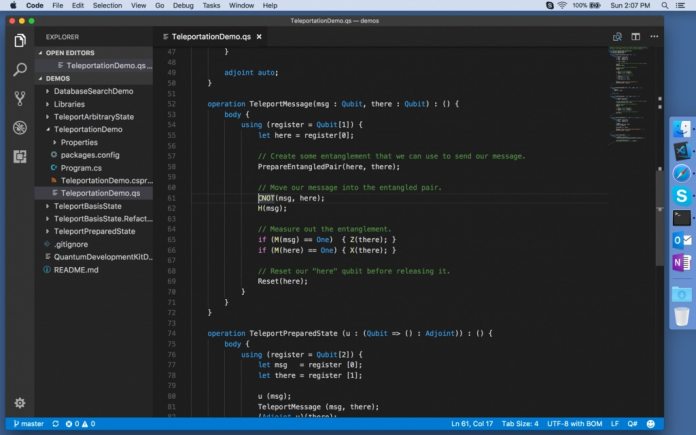Microsoft has announced a new update for its Quantum Development Kit. In a blog post, the company introduced support for Linux and MacOS, developing the cloud-based Q Programming suite further. Additional features in the update include interoperability with Python, more open source libraries, and performance improvements.
The company says expansion to other platforms allows Quantum Development Kit to reach more developers. Microsoft wants quantum computing to be the future and predicts it will solve many of today's technological problems.
First released in preview in December, Quantum Development Kit is the fruition of several years of development. The suite comes with a brand new programming language, called Q#. It has a compiler for scalable quantum computing.
Visual Studio integration and Azure cloud support allows over 40 logical qubits of power. The kit also contains debugging capabilities, as well as extensive libraries, samples, and documentation.
The idea is to get applications ready for the full launch of quantum computers, with Microsoft emerging a major player.
Microsoft explains “thousands of developers have explored the Quantum Development Kit and experienced the world of quantum computing, including students, professors, researchers, algorithm designers, and people new to quantum development who are using these tools to gain knowledge.”
Quantum Development Kit Update
Microsoft has focused on expanding availability and boosting performance in this update. Below is the full changelog:
- Support for Mac- and Linux-based development. This has been our #1 requested feature from developers, and we're thrilled to deliver support for building Q# quantum applications on macOS and Linux, including integration with VS Code and quantum simulation support.
- Full open source license for our quantum development libraries and samples. In December, we shared the source code for our libraries to help developers understand how Q# constructs work. Many developers wanted to do more than just learn with that code; they wanted to re-use it in their own applications and contribute their own enhancements back to the Q# community.
- Interoperability with the Python programming language. Many developers have existing libraries of code in Python so we wanted to give them easy access to that functionality from Q# without having to port anything. Available as a preview on Windows today, Python interoperability allows Q# code to call Python routines directly, and vice-versa.
- Faster simulator performance. We've increased our quantum simulator performance by up to 4-5x, giving you a much faster testing and optimization loop, especially on simulations involving 20 or more qubits.






